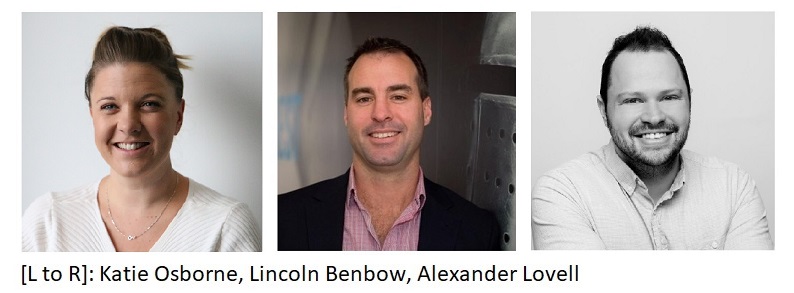“Thank you.”
“Great job on that report.”
“I know that can’t have been easy. Well done.”
When was the last time your boss said any of those things to you?
Words of praise cost nothing to employers yet have a profound effect on employees.
But according to a survey by recruiters Hays, 63 per cent of employees don’t feel they get enough praise for their work.
A miserable 8 per cent said they had never received words of approval from their boss.
“A deliberate ‘thank you’ increases an employee’s feeling of appreciation by 116 per cent, spontaneous praise increases it by 172 per cent, while formal recognition increases appreciation by 355 per cent,” says Alexander Lovell of employee recognition solutions company OC Tanner.
“It is human nature to want others to acknowledge you and value your contributions.”
The obvious benefits
Psychologist and high-performance specialist Dr Jo Lukins says recognition of staff is a form of gratitude by organisations.
“The gratitude research is clear: when we acknowledge, recognise, appreciate and savour the contributions of others, we are happier and it enhances performance,” she says.
A recent survey found six out of 10 tech professionals are unhappy in their jobs and more than half would not recommend their workplace as a ‘great place to work’.
“Employees need to feel respected, empowered and surrounded by positive attitudes and behaviours,” says Lincoln Benbow, Director at IT recruiter Halcyon Knights.
Acknowledgement and recognition make for happier workers. Happier workers are more engaged.
Engaged workers tend to stay where they are happy.

Hang onto good staff
Katie Osborne, General Manager of Project Services and Agile Delivery at Halcyon Knights, says businesses should be doing all they can to keep good tech staff, given the chronic shortages in the industry.
“Happiness at work is vital for attracting and retaining staff,” she says.
“In the current technology recruitment landscape, businesses need every advantage they can get in the war for Aussie tech talent.”
Brad Adams of outsourced human resources company The HR Dept says this especially true for small businesses struggling to compete with the perks offered by larger businesses.
“Where employers in the small and medium business space can match and beat big corporates is in staff retention,” he says.
“Deserved and targeted appreciation, for a job well done, is a crucial facet in lifting retention rates.
“Best of all, when done well, costs nothing yet delivers significantly to the bottom line.”
From the top
Where should recognition come from?
Osborne says it can come from anywhere – "whether from the CEO, or colleagues noticing you've gone the extra mile on a project".
“However, arguably, the most critical source is honest appreciation from a direct manager.”
Trudy MacDonald, Managing Director of human resources consultancy TalentCode HR, says high performing organisations and leaders prioritise employee recognition as they understand the impact it has on employee retention, engagement and discretionary effort.
“Although most organisations are striving for a high-performance culture, my observation is that many business leaders do not see the direct connection between their own behaviour, how well they engage with people, and ultimately how valued and appreciated their employees feel,” she says.

More than salary
If recognition is so important to employees, why are employers resistant to giving kudos when they’re due?
Perhaps bosses believe that because they are paying an employee a salary, their obligation ends there.
“Being paid for a job is not recognition,” says Monica Watt, Chief Human Resources Officer at Elmo Software.
“It’s fair pay for fair work, and it takes more than a salary to sustain employees to engage, commit or grow within an organisation.”
“A good employee recognition program motivates and empowers employees, in that it transforms teams, removes silos, improves processes and productivity, not to mention differentiates a business from its competitors.
“When applied well, monetary, non-monetary, formal, informal, individual and social recognition goes a long way to motivating and retaining employees.
Lukins explains that for employees to have “meaningful engagement” with their employer, “they typically want to be in an organisation that has a positive culture; consistency by its leaders; a collaborative team environment; clear communication; staff supported through technology; and consistency in processes, expectations and transparency.”
She adds recognition programs can serve as both an incentive and motivator for staff.
“A positive and grateful culture within an organisation goes a long way towards building harmony and satisfaction amongst staff,” Lukins says.
“This will increase the likelihood of engagement which has a positive impact on staff efficiency, productivity and reduces figures like turnover of staff.”
Recognition
Employee recognition is a responsibility of every business, says Watt, as it’s a key driver in fostering commitment, engagement and connection of an employee to the business, to others and fulfils the basic needs of people.
Lukins believes it is even more valuable, saying that a recognition program delivered well helps an organisation to reinforce the behaviours, attitudes and performances that are synonymous with the company’s values.
Over time, adds MacDonald, the impact on company culture includes accelerated employee growth and development and increased innovation.
“This occurs as employees grow faster and accept change more readily when they are receiving constructive feedback and are encouraged to have a growth mindset.
“When people feel valued and appreciated, they will more readily share ideas, take risks and engage in solving issues.
“These are all characteristics of a high-performance culture.”
Recognising and rewarding staff can have a widespread effect throughout a company.
“When recognition is embedded in the culture of a business, there are a number of immediate benefits including increased morale and engagement, improved tenure and attendance and improved productivity and performance,” says MacDonald.
And there’s no need to wait until monthly, quarterly, or annual staff awards to recognise good work, she adds.
“Creating a culture of recognition means that catching people doing good things, and providing timely, constructive and specific feedback.”
Why doesn’t my boss say thank you?
MacDonald says that after working with hundreds of CEOs across all industries, her observation is that most CEOs do appreciate their people however either “don’t think to tell them or don’t have the discipline to stop what they are doing and make the effort to have the conversation.”
She adds many CEOs are intrinsically motivated and don’t seek recognition from others.
“It is often lonely at the top and the opportunity to receive external recognition is limited.
“As a result, many CEOs hold that belief that if they don’t need recognition, then others don’t need it either.”










